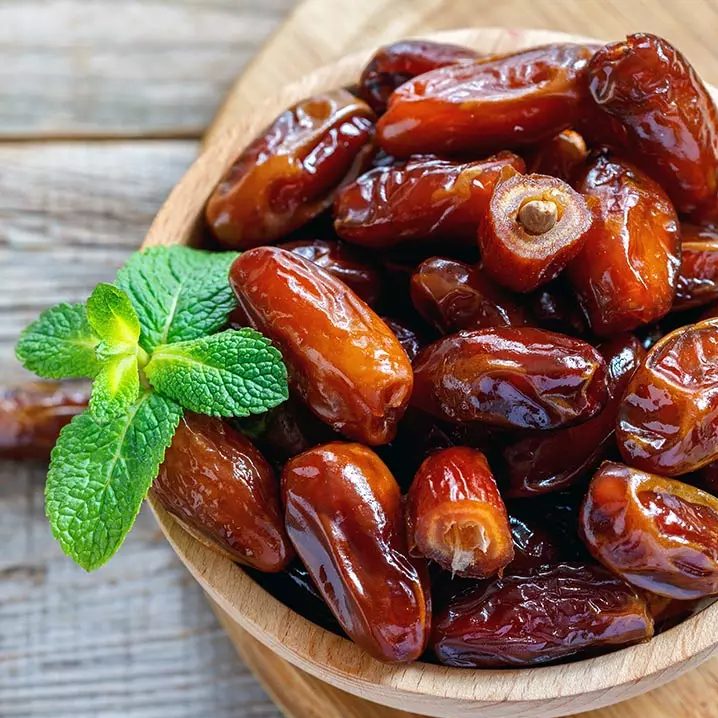Introduction to Dried Fruits and Diabetes
Dried fruits are often touted as nutritious snacks packed with vitamins, minerals, and antioxidants. However, for individuals with diabetes, it’s essential to understand how these seemingly healthy options fit into their diet. Dried fruits can be higher in sugars and calories compared to their fresh counterparts, which may pose challenges for blood sugar management. In this article, we will explore discover if dried fruit is suitable for a diabetic diet, the nutritional profile of dried fruits, how they impact blood sugar levels, suitable options for a diabetic diet, portion control, healthy recipes, and the importance of consulting healthcare professionals. By understanding these factors, individuals with diabetes can make informed decisions about incorporating dried fruits into their diets.
Learning to navigate dried fruits can enhance the variety of snacks available while helping manage blood sugar levels effectively.
The Nutritional Profile of Dried Fruits
Vitamins and Minerals
Dried fruits offer an array of essential nutrients, including vitamins and minerals that are beneficial for overall health. For instance, dried apricots are rich in vitamin A and potassium, while raisins are a good source of iron. These nutrients can contribute positively to a balanced diet when consumed in moderation.
However, the drying process can concentrate sugars and calories. A small quantity of dried fruits can have a similar caloric value to a larger serving of fresh fruits, making portion control crucial. Despite their energy density, the vitamins and minerals in dried fruits still provide health benefits, making them a valuable addition to a diverse diet.
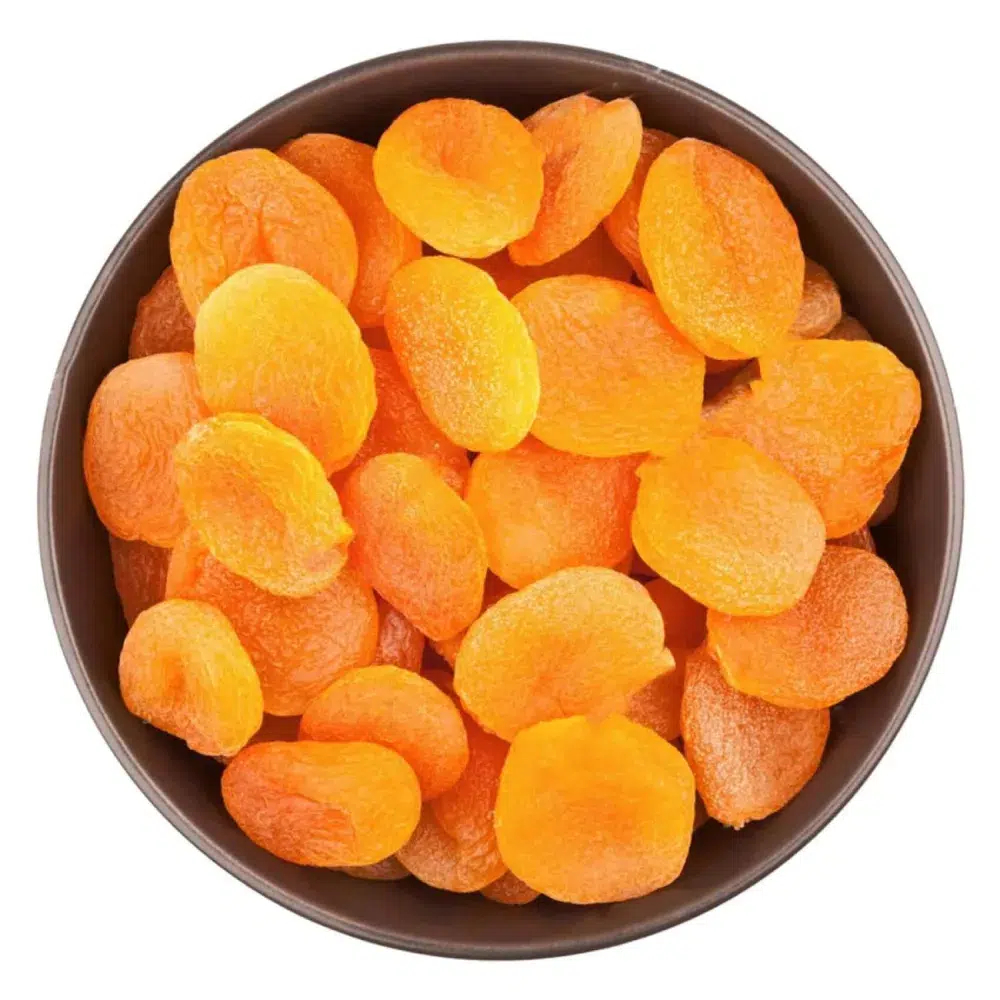
Antioxidants and Fiber
Dried fruits are also rich in antioxidants that help combat oxidative stress in the body. Antioxidants can reduce inflammation and may lower the risk of various chronic diseases. Additionally, many dried fruits are high in dietary fiber, which is beneficial for digestive health. Fiber can also aid in regulating blood sugar levels by slowing the absorption of sugars into the bloodstream.
While the fiber content is a positive aspect, it’s important to note that not all dried fruits have the same fiber levels. Choosing varieties that retain a significant amount of fiber can enhance health benefits and support healthy digestion, particularly for individuals managing diabetes.
Impact of Dried Fruits on Blood Sugar Levels
Glycemic Index Considerations
The glycemic index (GI) is a crucial factor to consider when managing diabetes. The GI measures how quickly a food raises blood sugar levels. Many dried fruits have a moderate to high GI, meaning they can cause a faster spike in blood sugar compared to fresh fruits. For example, dried raisins have a higher GI than fresh grapes, which can impact blood sugar control.
Understanding the glycemic impact of various dried fruits can help individuals with diabetes make better choices. Pairing dried fruits with low-GI foods, such as nuts or yogurt, can help moderate blood sugar spikes. It’s crucial to include this information alongside serving sizes to ensure balanced blood sugar management.
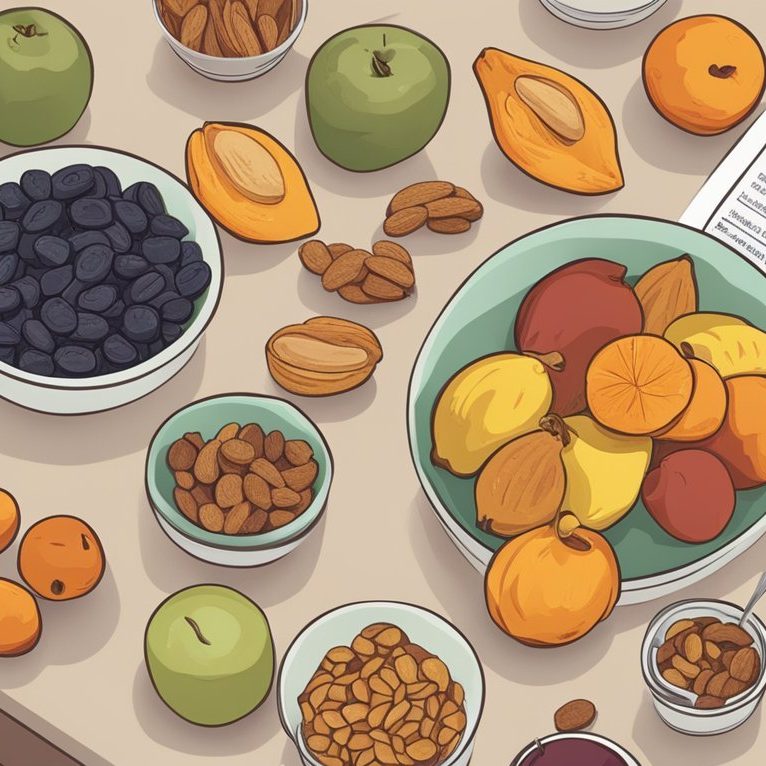
Portion Control and Serving Sizes
Portion control is fundamental when incorporating dried fruits into a diabetic diet. Due to their concentrated nature, dried fruits can quickly lead to excess sugar and calorie intake if portions are not monitored. A typical serving size for dried fruits is about one to two tablespoons, whereas fresh fruits can be consumed in larger quantities due to their higher water content.
Keeping servings small and manageable can prevent unwanted blood sugar spikes. It may also be beneficial to measure out portions in advance, making it easier to resist overindulgence. Mindful eating practices can not only help maintain blood sugar control but also enhance overall dietary management.
Suitable Dried Fruit Options for Diabetics
Low-Sugar Choices
When selecting dried fruits for a diabetic diet, opting for lower-sugar varieties is key. Some suitable options include unsweetened dried apricots, prunes, and figs. These choices tend to have a balanced flavor profile without added sugars.
An important tip is to choose dried fruits that are labeled as “no added sugar” to avoid unnecessary sweeteners. Always read nutritional labels carefully, as some brands may add sugars or syrups that increase the glycemic index and calorie content. By being selective about the types of dried fruits consumed, individuals with diabetes can enjoy flavorful options without compromising their health.
Combining Dried Fruits with Other Foods
Combining dried fruits with other nutrient-dense foods can enhance blood sugar management and overall satisfaction. For instance, paired with a handful of nuts, dried fruits can create a balanced snack rich in healthy fats and protein. This combination not only adds flavor but also provides sustenance that can help stabilize blood sugar levels.
Additionally, incorporating dried fruits into meals—as opposed to consuming them alone—can mitigate their glycemic impact. For example, adding dried cranberries to a salad or using dried apricots in savory dishes can create a balanced meal. Such strategies can promote better blood sugar control and encourage diverse eating habits.
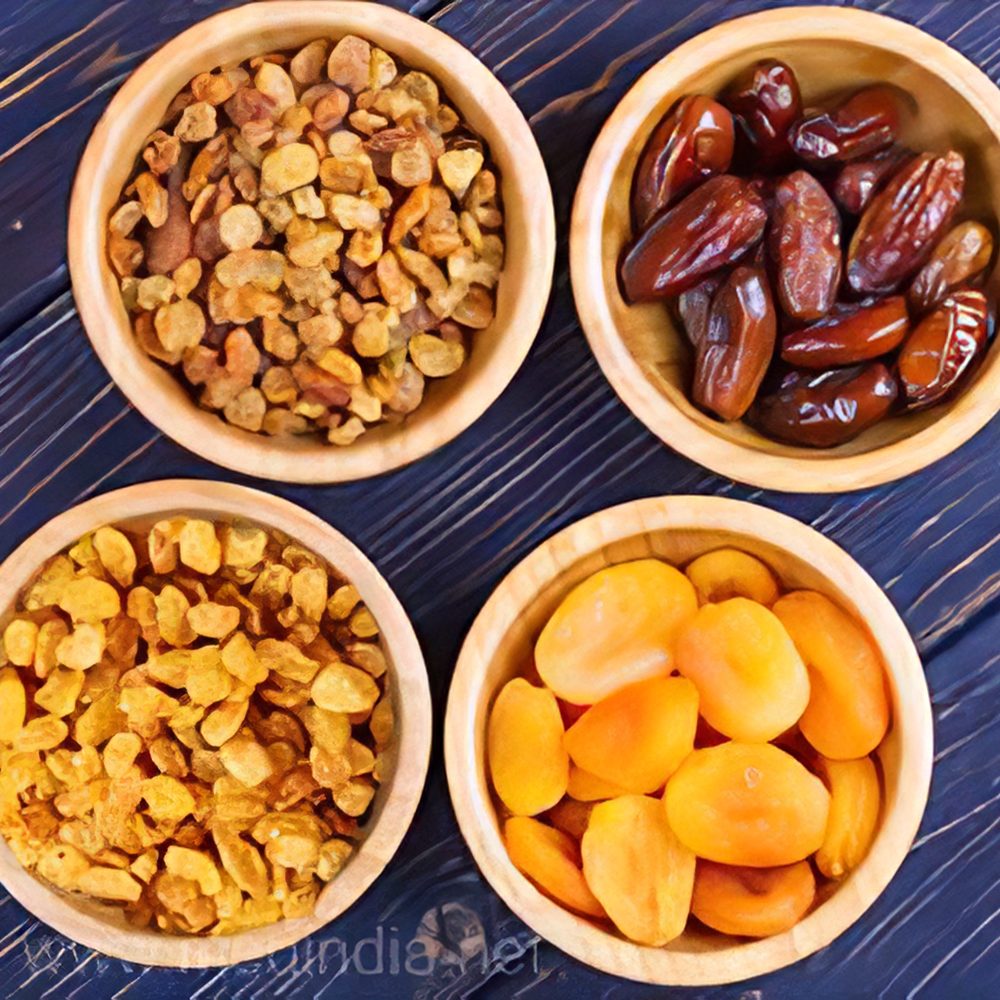
Is Freeze Dried Fruit Good for Diabetics
Nutritional Benefits of Freeze-Dried Fruit for Diabetics
Freeze-dried fruit can be a great option for individuals with diabetes, as it retains most of the essential nutrients found in fresh fruits. During the freeze-drying process, fruits are rapidly frozen, and the moisture is removed through sublimation, preserving their vitamins, minerals, and antioxidants. As a result, freeze-dried fruits often provide similar nutritional benefits as fresh options but in a more concentrated form. They tend to be lower in calories than many other processed snacks, making them a healthy alternative for satisfying sweet cravings without adding too much sugar to your diet. Additionally, the high fiber content in freeze-dried fruits can contribute to better blood sugar control, as fiber helps slow down the absorption of sugars into the bloodstream, which can be particularly beneficial for individuals managing diabetes.
Portion Control and Practical Uses
One of the advantages of freeze-dried fruit is its convenience. Since it has a long shelf life and requires no refrigeration, it can be an easily accessible snack for those with diabetes. However, portion control remains critical. While freeze-dried fruits can be lower in calories, they are also nutrient-dense and can contain higher concentrations of natural sugars. Therefore, it’s essential for diabetics to measure out portions to avoid exceeding daily carbohydrate targets. Freeze-dried fruits can be used in a variety of ways: they can be added to yogurt, oatmeal, or salads for a nutritious boost, or enjoyed on their own as a crunchy snack. This versatility allows individuals to enjoy the flavors of summer fruits year-round while still adhering to their dietary needs, making it a valuable addition to a balanced diabetic diet.
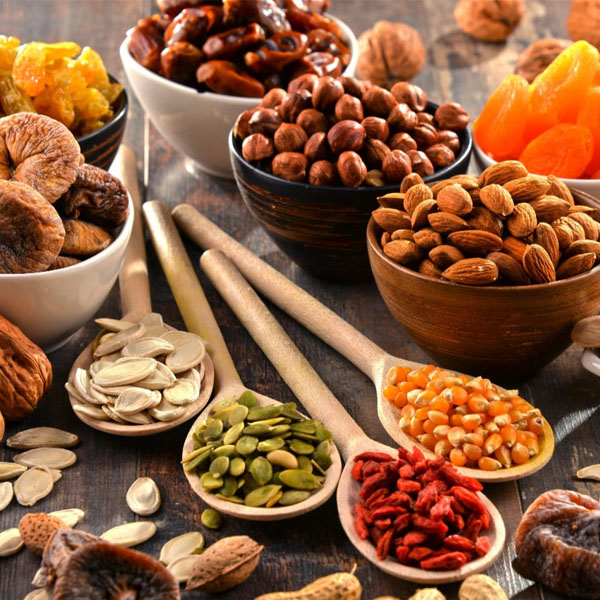
Healthy Dried Fruit Recipes for Diabetics
Nut and Dried Fruit Trail Mix
Creating a homemade trail mix is a simple yet healthy way to enjoy dried fruits. To make a diabetes-friendly trail mix, combine unsweetened dried fruits, such as apricots or cranberries, with a selection of nuts like almonds, walnuts, or pistachios.
This combination offers essential nutrients, healthy fats, and protein, making for a satisfying snack. Be sure to monitor portion sizes—about a quarter-cup serving can provide a nutritious boost without overwhelming caloric intake.
Dried Fruit and Yogurt Parfait
Constructing a yogurt parfait with dried fruits can serve as a great breakfast or snack option. Start with a base of Greek yogurt, which is high in protein and lower in sugar compared to traditional yogurt. Layer unsweetened dried fruits, such as figs or apricots, alongside some fresh berries for added flavor.
Top the parfait with a sprinkle of cinnamon or a few seeds to enhance nutrition. This dish not only looks appealing but also incorporates valuable elements for managing diabetes effectively.
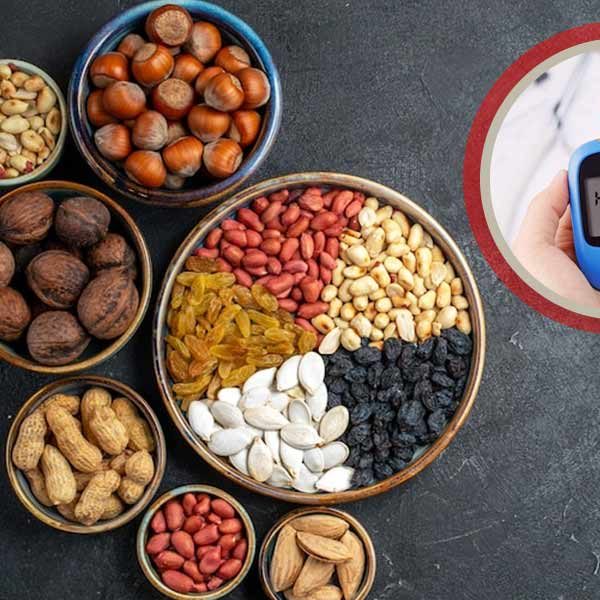
Consulting Healthcare Professionals
Importance of Personalization
Navigating a diabetic diet, especially regarding dried fruits, can be complex. Individual needs can vary widely, depending on factors like blood sugar control, activity level, and overall health. Consulting healthcare professionals, such as registered dietitians or diabetes educators, can provide personalized guidance tailored to your specific dietary requirements.
Healthcare professionals can help you understand how to incorporate dried fruits wisely into your diet while considering your total carbohydrate intake. They can also provide strategies for meal planning that optimize nutrient intake without compromising blood sugar management.
Regular Monitoring and Adjustments
It’s important to regularly monitor your blood sugar levels to understand how different foods, including dried fruits, affect your body. Based on this feedback, you may need to adjust portion sizes or select different fruits to better maintain control.
Working closely with healthcare professionals ensures proactive management of your dietary choices. This partnership can empower you to make informed decisions and develop a sustainable eating plan that prioritizes both enjoyment and health.
Conclusion: Enjoying Dried Fruits in a Diabetic Diet
In conclusion, dried fruits can be a delightful and nutrient-rich addition to a diabetic diet when approached with care and mindfulness. Understanding their nutritional profile, glycemic impact, and appropriate portions is vital in incorporating these foods effectively. By being selective about the types of dried fruits consumed, combining them with other foods, and exploring creative recipes, individuals with diabetes can enjoy a variety of flavors while managing their health.
Consulting with healthcare professionals for individualized guidance can further enhance your dietary choices and blood sugar management. With the right knowledge and strategies, dried fruits can be a healthy and enjoyable part of your daily meals, contributing to both pleasure and well-being. Embrace this opportunity to diversify your diet and indulge in the rich flavors and nutrients that dried fruits can offer!
